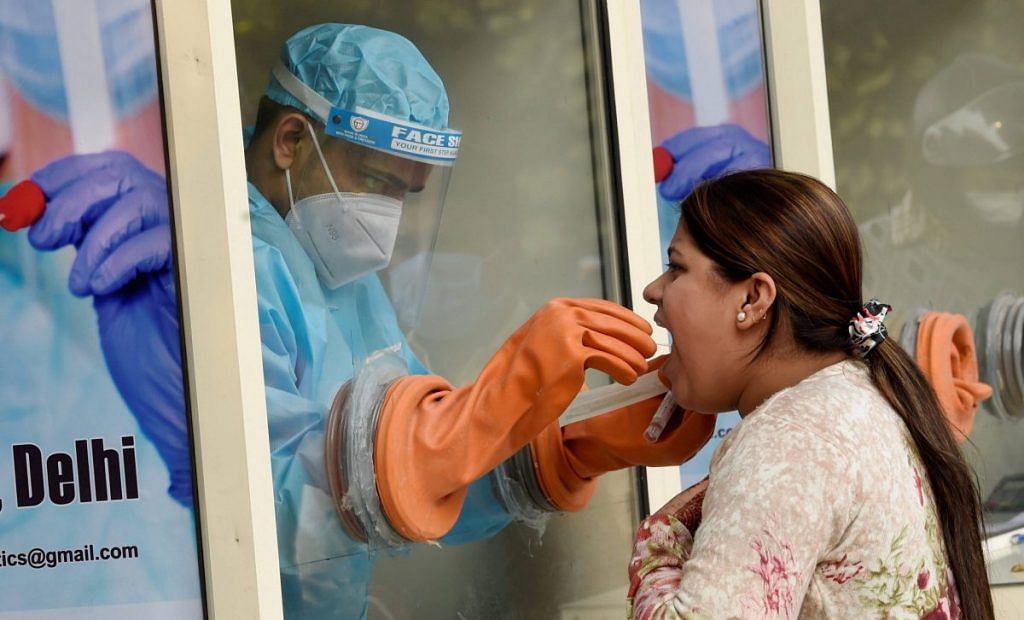New Delhi: The human body’s immune response against SARS-CoV-2 lasts for upto eight months in people who have recovered from the Covid-19 infection, according to a new US study that also hints that those who have been exposed to the virus or been vaccinated may be protected for decades.
To control the pandemic, it is important to know whether people exposed to the virus have long-lasting immunity. Besides, to understand who needs to be vaccinated for the population to achieve herd immunity, scientists need to know whether people who have once recovered from the virus remain susceptible to repeat infections.
Since most vaccines work by triggering the body’s own immune response, the basic understanding of the immune system is important to comprehend whether the population will need to be vaccinated repeatedly.
In the latest study, which is yet to be peer-reviewed, researchers from La Jolla Institute for Immunology in the US analysed the multiple types of immune cells in 185 Covid patients, including 41 cases who had recovered from the infection in over six months before the study.
The team did a simultaneous measurement of antibodies, memory B cells and T cells, specific for SARS-CoV-2, in a range of participants, some of whom had recovered from Covid.
“To our knowledge, this is the first study of its kind, incorporating antigen-specific antibody, memory B cell, CD8+ T cell, and CD4+ T cell measurements, out past 6 months post-infection,” the researchers wrote in the study.
Memory B cells are a type of white blood cells that repeatedly generate an accelerated antibody-mediated immune response in the case of re-infection.
In this study, the researchers found that memory B cells, which recognise the spike protein of the SARS-CoV-2, were more in abundance after six months of recovery than after one month.
Cytotoxic T Cells or CD8 T Cells kill infected cells, primarily by releasing cytotoxic granules into an infected cell. These cells recognise specific antigens such as fragments of viruses.
T-Helper Cells or CD4 T Cells have a wider range of functions, including activating other immune cells, releasing cytokines, and helping B cells to produce antibodies.
Following an infection, antigen-specific, long-lived memory T cells are formed. Memory T cells can quickly expand to large numbers of T cells upon re-exposure to the antigen.
They provide the immune system with memory of previously encountered antigens. Memory T cells may either be CD4+ or CD8+.
Also read: As daily Covid cases fall below 30,000, positivity rate dips to 5-month low at 3.4%
‘Immune responses differ from person to person’
The study found that SARS-CoV-2-specific CD4+ T cells and CD8+ T cells declined with a half-life of 3-5 months.
The researchers also pointed out that “heterogeneity is the central feature of immune memory to this virus”. This means that the immune responses differ from person to person even over a span of several months.
However, almost all individuals had SARS-CoV-2 specific antibodies after over five months.
Memory B cells detected in almost all cases
Memory B cells specific to SARS-CoV-2 were detected in almost all Covid cases.
The researchers noted that B cell memory to some other infections have been long-lived. For example, B cell memory lasts for 60 years after smallpox vaccination and over 90 years after infection with influenza.
The memory T cell activities were comparable to that observed soon after yellow fever immunisation.
Based on what has been observed in viral infections in the past, the researchers suggested that T cell memory might decline more slowly after the first six months of recovery from the infection.
The research is consistent with a previous study from China that also showed that certain antibodies against the SARS-CoV-2 can last in the body for at least six months after infection.
Also read: ‘Long Covid’ causing organ impairments in 70% of low-risk patients, says UK study
